The Corporate Future of Law Enforcement in "RoboCop"
Explore the classic "RoboCop" (1987) directed by Paul Verhoeven. This nostalgic film blends action and social commentary, rated 7.6/10.
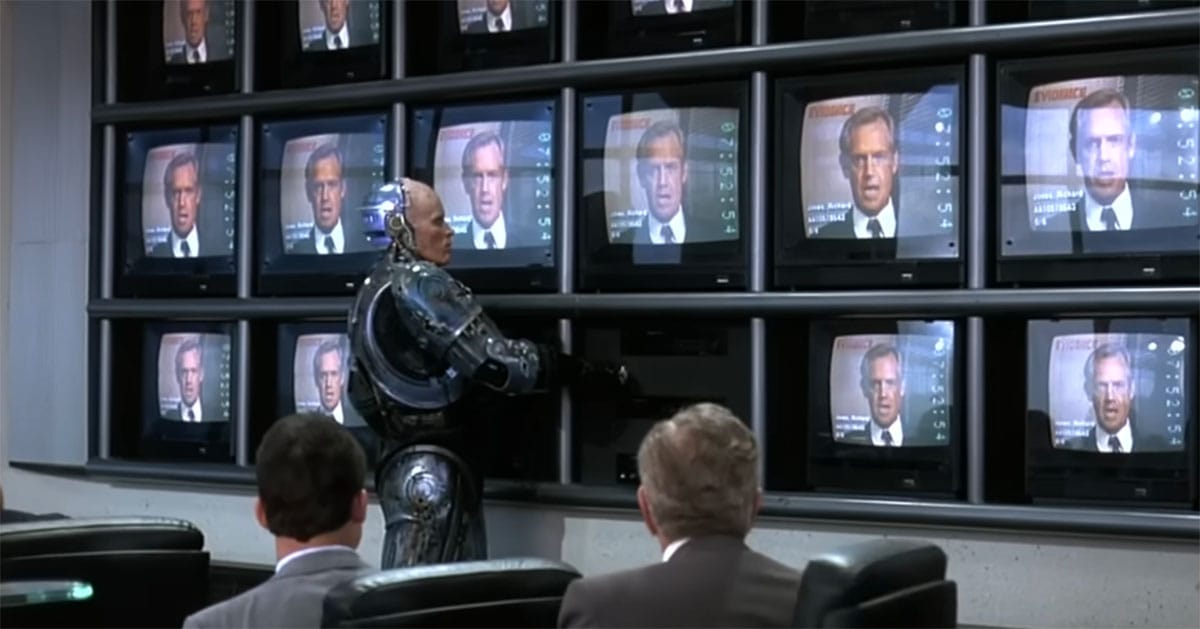
Released in 1987 and directed by Paul Verhoeven, "RoboCop" blends explosive action with an unexpectedly sharp moral edge. Written by Edward Neumeier and Michael Miner, it follows Officer Alex Murphy, played by Peter Weller.
Murphy is killed and rebuilt as a cybernetic law enforcer controlled by Omni Consumer Products. Nancy Allen lends quiet strength as his partner Anne Lewis, and Kurtwood Smith delivers an unflinching portrait of Clarence Boddicker, a crime lord whose cruelty is matched only by his ambition.
Beneath the film’s armored exterior lies a story about power, who wields it, who surrenders it, and what it costs to keep it. The futuristic Detroit it presents is one where corporate interests dictate civic order and the value of a human being is measured in efficiency rather than empathy. Violence becomes more than entertainment and works as a reflection of the cold calculations that drive both boardroom deals and street-level brutality.
"RoboCop" remains notable not only for its technical execution and satirical bite but also for how it captures the anxieties of its age. It imagines a future that feels uncomfortably near, where machines carry out justice yet struggle to understand its meaning.
| Key | Value |
|---|---|
| Title | RoboCop |
| Director | Paul Verhoeven |
| Writer | Edward Neumeier, Michael Miner |
| Actors or actresses | Peter Weller, Nancy Allen, Dan O'Herlihy |
| Rated | R |
| Runtime | 102 min |
| Box Office | $53,424,681 |
| U.S. Release Date | 17 Jul 1987 |
| Quality Score | 7.6/10 |
Synopsis
After his transformation into "RoboCop," Alex Murphy faces the challenge of serving as a law enforcer in a city that has surrendered to crime and decay. The corporation that rebuilt him exerts control through programmed directives that place profit above justice. Fragments of memory from his past life disrupt his duties and stir a longing for the man he once was. These glimpses of humanity set him on a path to confront both his personal loss and the cold reality of his new existence.
In his pursuit of order, Murphy encounters Clarence Boddicker, a figure who embodies the violence and corruption of Detroit. Leading a ruthless gang, Boddicker threatens the safety of the city and the stability of Murphy’s fragile identity. Driven by a deep commitment to protect the innocent, "RoboCop" engages in a series of escalating battles that lead to a decisive confrontation with both the gang and the corporate powers behind his creation.
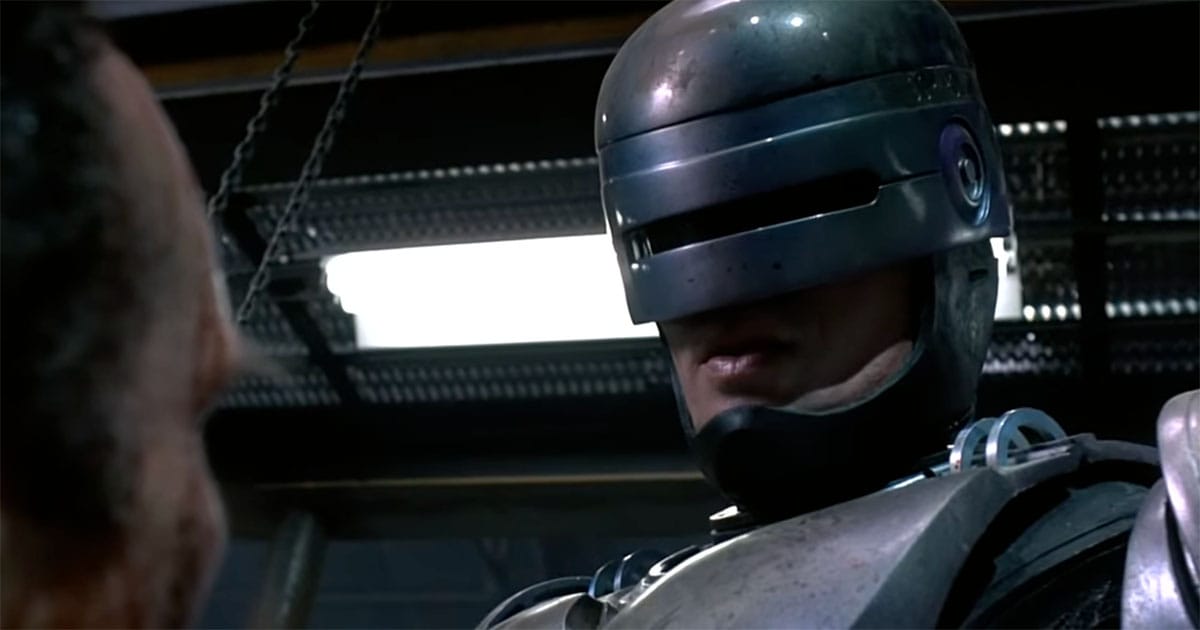
The struggle becomes more than the apprehension of criminals. It is a fight to reconcile the man with the machine, and to affirm that the value of life cannot be measured in corporate terms. Through this conflict, the story examines how technology can serve justice yet risk stripping away the very humanity it is meant to protect.
Themes
"RoboCop" presents a grim yet compelling vision of a near-future Detroit where crime thrives and public safety is treated as a market commodity. The atmosphere is shaped by gritty visuals and an intense soundscape that heightens the sense of unease. Dark humor cuts through the tension, offering moments of biting satire amid the chaos. The contrast between gleaming corporate offices and the city’s decaying streets reflects a deep social divide and underscores the story’s criticism of capitalism’s dehumanizing effects.
A central theme is the struggle for identity in a world dominated by machinery and corporate agendas. Alex Murphy’s transformation into RoboCop becomes a battle between the man he was and the programmed instrument he has become. His fragmented memories emerge as brief but powerful reminders of the life taken from him. These moments carry an emotional weight that challenges the audience to consider the cost of surrendering humanity to technology.
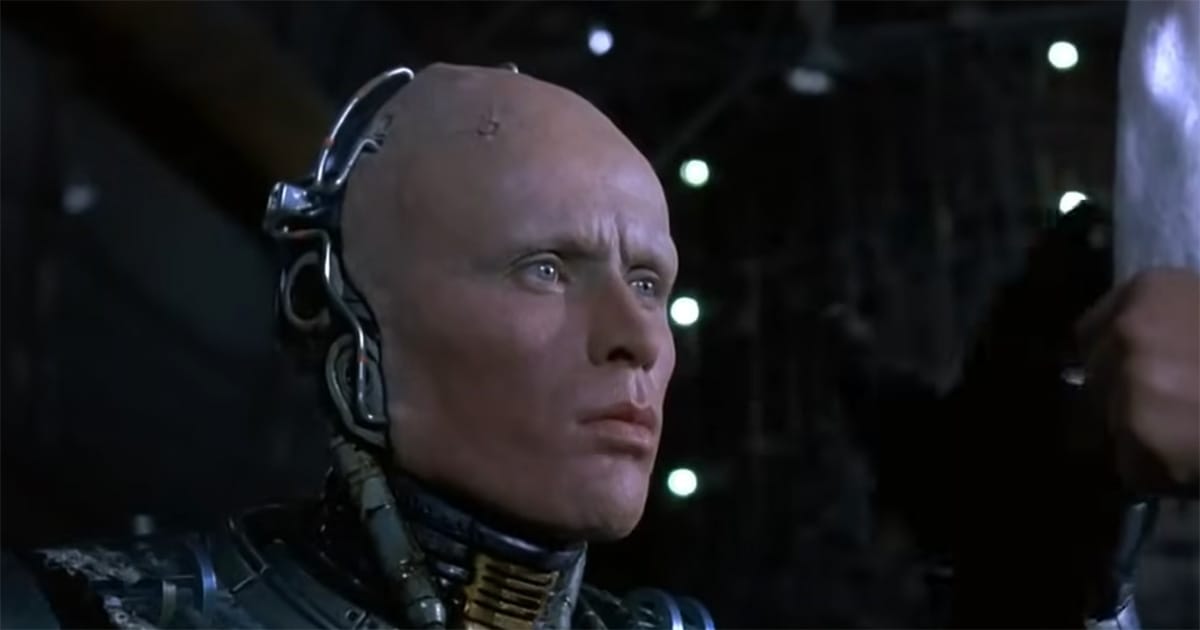
The film’s satire targets corporate greed and the commodification of human life. Omni Consumer Products treats law enforcement as a business venture, shaping RoboCop into a product designed to boost public image and profit margins. Executives operate without moral constraint, manipulating systems to serve their ambitions. Their presence offers a chilling depiction of unchecked corporate authority.
Murphy’s pursuit of justice stands in sharp contrast to this corporate mindset. His actions, however constrained by programming, are driven by a will to protect the innocent. The battles he fights are staged with the sound of gunfire, the grinding of machinery, and the heavy tread of his cybernetic frame. These sequences provide spectacle while doubling as commentary on the disorder consuming the city.
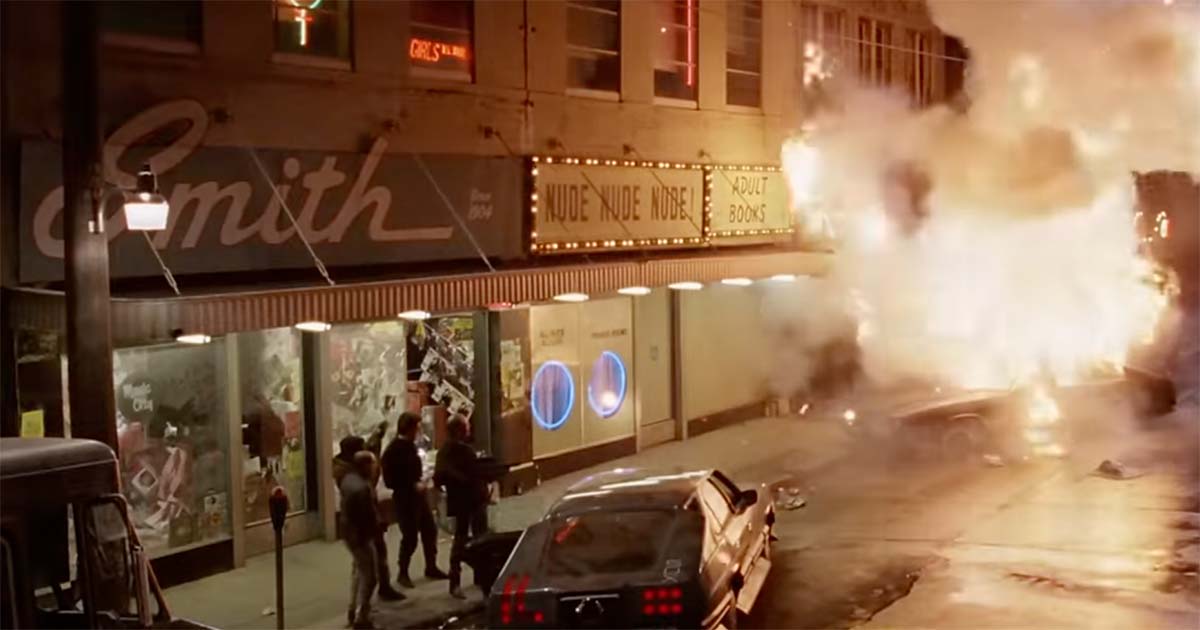
Visual style strengthens these ideas. Stark lighting casts long shadows that mirror the moral darkness of the setting. Set designs blend advanced technology with urban decay, creating a sense that the conflict between man and machine is both inevitable and irreconcilable. The aesthetic choices deepen the atmosphere of tension and reinforce the story’s themes.
"RoboCop" leaves viewers questioning where the line between humanity and machinery should be drawn. It examines identity in an age of mechanization and corporate dominance through a protagonist who retains a moral core despite his transformation. The film’s combination of story, performance, imagery, and sound creates an enduring experience. Its impact continues to spark discussion about justice, technology, and the worth of human life in a world defined by change.
Who Will Enjoy Robocop
"RoboCop" appeals to a wide range of viewers, including many who do not usually seek out science fiction. Its blend of action, social commentary, and character-driven storytelling invites multiple interpretations and lends itself to conversation long after the viewing ends.
Those interested in stories that question corporate influence and the role of public institutions will find rich material here. The film creates a shared experience that works as well for casual discussions as it does for deeper analysis.
Fans of dark humor will also appreciate its satirical streak. The chaotic world on screen is punctuated by absurd advertising and the overblown villainy of corporate executives.
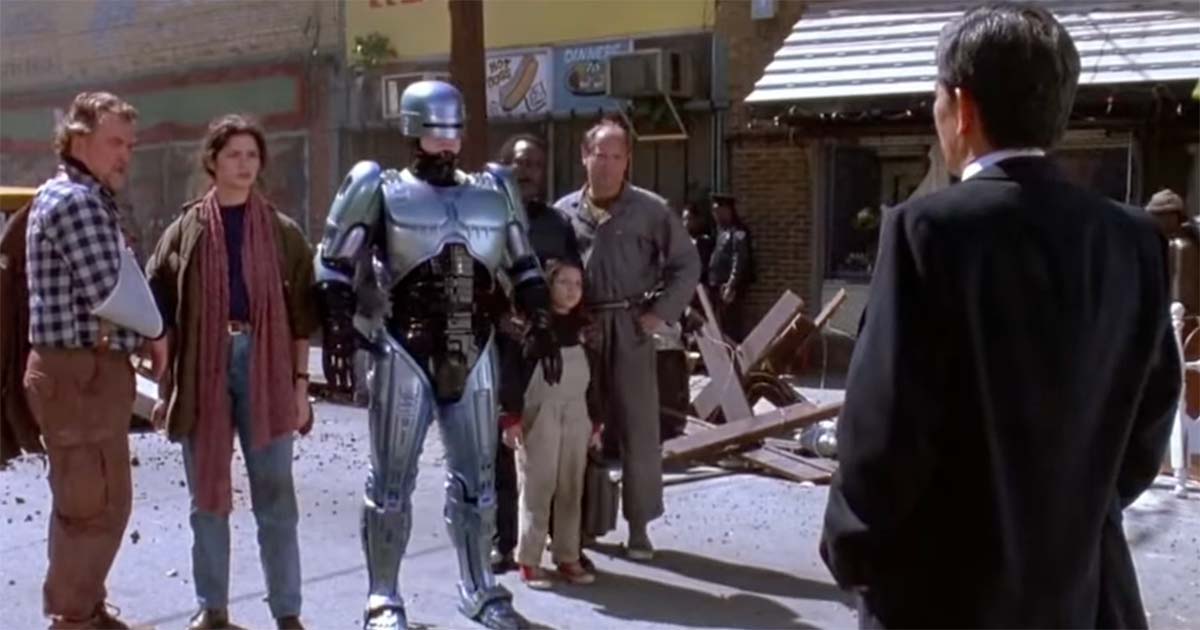
These moments provide humor without undermining the tension, allowing the audience to laugh while still engaging with the film’s warnings about technology and power. Group viewings often bring these themes to the surface in lively discussion.
Nostalgia draws in another group of viewers. For those who first saw it in the late 1980s, "RoboCop" recalls a cultural moment defined by both optimism for technology and fear of its misuse. Watching it today invites reflection on how those concerns have evolved. The film’s enduring energy makes it a strong choice for retrospectives or themed movie nights.
While its violence and intensity may not suit those looking for light escapism, "RoboCop" holds particular appeal for audiences who value action intertwined with moral complexity. It encourages reflection on identity, justice, and personal agency in an age of advancing technology. That lasting relevance ensures its place as more than entertainment, making it a work that continues to inspire discussion decades after its debut.

